Private land
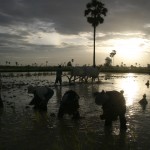
Rights to private land ownership were guaranteed in the 1993 Constitution and formally established by the 2001 Land Law. Despite an established legal framework to protect private property rights, those rights are often insecure for many. ...
Forest cover
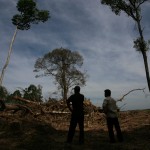
Cambodian forest cover has reduced dramatically in recent decades. In 1973 there were 13.1 million hectares of total forest, but by 2014 the total cover had fallen to 8.7 million hectares. ...
Head of state
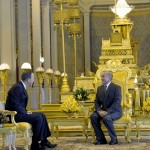
The Kingdom of Cambodia is a constitutional monarchy. The king is the head of state for his lifetime but does not govern. ...
Coal
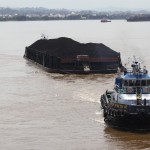
Although exploratory work has indicated the presence of modest coal resources in northern Cambodia, no commercial-scale mining has yet begun. The coal used in electricity generation and for other purposes is imported.A coal barge from Samarinda coal mine on the Mahakam river. Indonesia, Borneo. Photo ...
Forests and forestry

Cambodia’s forests have seen a significant reduction of total forest and dense forest cover in recent years, the growth of plantations, particularly rubber, and an ongoing problem with illegal logging. ...
Environmental impact assessments
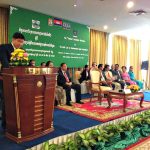
The primary legal requirements for environmental impact assessments (EIAs) in Cambodia are set out in Content II, Book V of the Environment and Natural Resource Code19, Chapter III of the Law on Environmental Protection and Natural Resource Management 199620(EPNRM Law), and the Sub-decree no. 72 ...
Development policies and administration
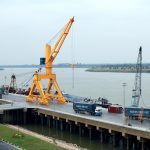
Products from Vietnam arrive at the Phnom Penh Autonomous Port in Kandal province. Photo by World Bank Photo Collection, taken on 23 February 2013. Licensed under CC BY-NC-ND 2.0The Comprehensive Cambodian Peace Agreement, commonly referred to as the Paris Agreement, is seen as the beginning ...
Priority health concerns
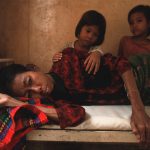
Two daughters look at their mother who is dying from HIV/AIDS, Cambodia. Photo by World Bank, taken in 2002. Licensed under CC BY-NC-ND 2.0.Two common features mark Cambodia’s major health concerns:Some health figures are among the worst in the world – the 26 cases of ...
Social development
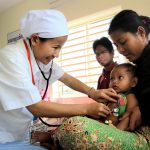
A trained medical staff listens to the heartbeat of an infant at 16 Makara hospital in Preah Vihear, Cambodia. Photo by The World Bank, taken on 30 January 2013. Licensed under CC BY-NC-ND 2.0.Social development addresses profound social problems,146 especially poverty, unemployment and social exclusion, ...
Trade policy and regulation
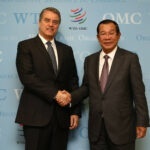
Cambodian Prime Minister Hun Sen were at the Aid for Trade Global Review 2019. Photo by World Trade Organization (WTO), taken on 03 July 2019. Licensed under CC BY-SA 2.0.International trade plays an essential role in improving Cambodia’s growth, employment and business opportunities. Trade policy ...
Fishing, fisheries and aquaculture
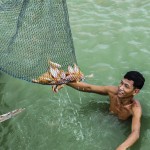
Cambodian fish farmer checking on fish quality. Photo by U.S. Agency for International Development (USAID), taken on 16 October 2012. Licensed unDer CC BY-NC-ND 2.0.Cambodia’s inland capture fisheries are among the largest in the world. The fishing industry encompasses subsistence, commercial and recreational fishing, as ...
Pollution and waste
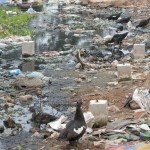
The rapid economic and population growth in Cambodia is leading to significant environmental pollution. The economic development activities have generated major environmental consequences, including air pollution, water pollution, noise pollution and solid wastes. ...
Fishing policy and administration
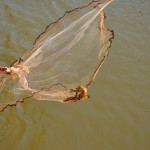
Young man fishing with a cast net on Siem Reap river, Cambodia. Photo by Brian Hoffman, taken on 12 January 2015. Licensed under CC BY-NC-SA 2.0.Fisheries management in Cambodia is divided between central and local governments. At the central level, the Ministry of Agriculture, Forestry ...
Land policy and administration
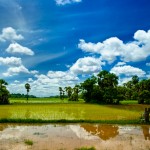
The Royal Government of Cambodia's land policy has three pillars: land administration, land management and land distribution. The objective of the country’s land policy is to facilitate the use and management of land and natural resources for socio-economic development in an equitable and sustainable manner. ...
Decentralization and deconcentration
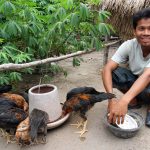
Decentralization and Deconcentration are seen as “internally driven” reforms294, where the national government gradually Delegates power, involving either administration or finance, to local governments to administer in their locality.27-year-old Sun Sovath supports his family by raising chickens, in Kampong Thom, Cambodia. Photo by World Bank Photo ...
Banking and financial services
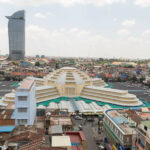
According to the Annual supervision report 2020 by the National Bank of Cambodia (NBC), the key bodies in the banking system consists of:51 commercial banks12 specialized banks75 microfinance non-deposit taking institutions6 microfinance deposit-taking institutions245 rural credit institutionsIn addition, there are financial leasing companies, third-party processors, ...
Poverty policy and regulation
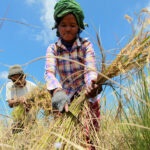
As a fast-developing nation, Cambodia has always found poverty one of its main challenges. The Rectangular Strategy states that eradicating poverty has long been one of the Royal Government of Cambodia’s (RGC’s) highest priorities.400 Since the country’s first major post-civil war election in 1993, Cambodia ...
Investment policy and regulations
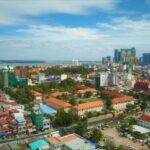
Cambodia’s economy has experienced an impressive performance, reflected in its rapid economic growth and significant poverty reduction. Part of this is the result of the relative openness of Cambodia towards foreign investors. Domestic investment has also been growing, although at a lower rate than other ...
Forest cover reporting
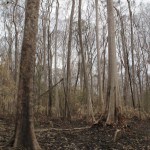
Forest cover is the area of land covered by tree canopy. Measuring and reporting this can show the different types of forest that exist and the areas of each, and how these areas change over time. ...




